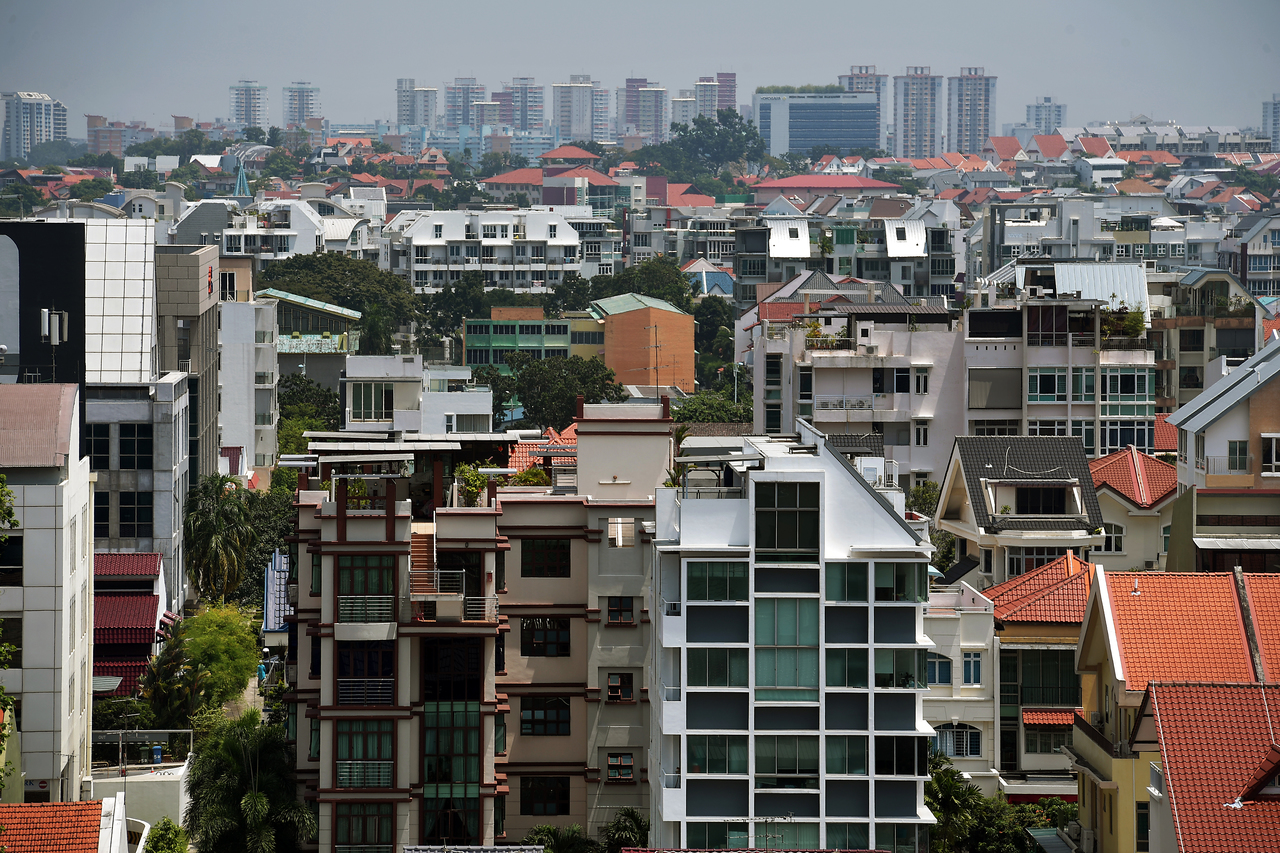Retirement savings may best real estate returns in Singapore
Sign up now: Get ST's newsletters delivered to your inbox

The rate of return for private apartments in Singapore has slipped since 2011, when measures to cool the market were introduced by the government.
PHOTO: ST FILE
Follow topic:
SINGAPORE (BLOOMBERG) - In property-crazed Singapore, owning real estate isn't always the high-yielding investment you might think.
The rate of return for private apartments in the city-state has slipped since 2011, when measures to cool the market were introduced by the government. In fact, some units now have a lower yield than Singapore's national pension plan, the the Central Provident Fund (CPF), which has a minimum fixed rate of return of 2.5 per cent, research from property analytics start-up UrbanZoom shows.
UrbanZoom uses artificial intelligence to analyze property data. Its study examined 470,000 transactions that took place since 1995 across 300,000 private apartments on the island.
To get a better gauge of returns, researchers narrowed the field to over 110,000 units that had been bought and sold more than once, giving more than 160,000 transactions. The study didn't account for transaction-related costs such as taxes, legal fees and agents' commissions.
"Since we know the original purchase price, the subsequent sale price and the transaction timings, we can calculate the annualized returns for any given buy-sell transaction pairs," UrbanZoom founder Michael Cho said.
POOR SENTIMENT
After rising to a record high of 8.8 per cent in 2011, median annualized capital gains sunk, reaching around 2.2 per cent last year. In July 2018, another round of cooling measure were introduced that included raising stamp duties for second homes, tightening loan-to-value limits for mortgages and making it more expensive for foreigners to enter the market.
"We found that while 82 per cent of condo owners are sitting on capital gains, only 44 per cent will be expected to generate an annualized return greater than 2.5 per cent per annum, with most of them having purchased their units before 2008," Cho said.
The findings show the deep and persistent impact government curbs have had on property prices, analysts said.
The rounds of curbs "didn't just damp price increases, they damped sentiment," said Nicholas Mak, the Singapore-based head of research at APAC Realty unit ERA. Government bonds may be a surer thing, he said.
For CPF, ordinary account monies earn either the legislated minimum interest of 2.5 per cent a year, or the three-month average of major local banks' interest rates, whichever is higher. The ordinary account interest rate will be maintained at 2.5 per cent from Jan 1 through March 31, 2020, according to the fund's website.
The study also found that home owners are holding onto property longer. The median holding period was 8.2 years in 2019 from a low of 3.6 years in 2009.
"With cooling measures in place, the rate of price increases has slowed to a point that owners may need to wait longer before the value of their property rises above their initial entry price, plus ancillary expenses and stamp duties," said Alan Cheong, a senior director at Savills. "Owners are willing to wait until they make a profit or reduce their losses before they sell."

